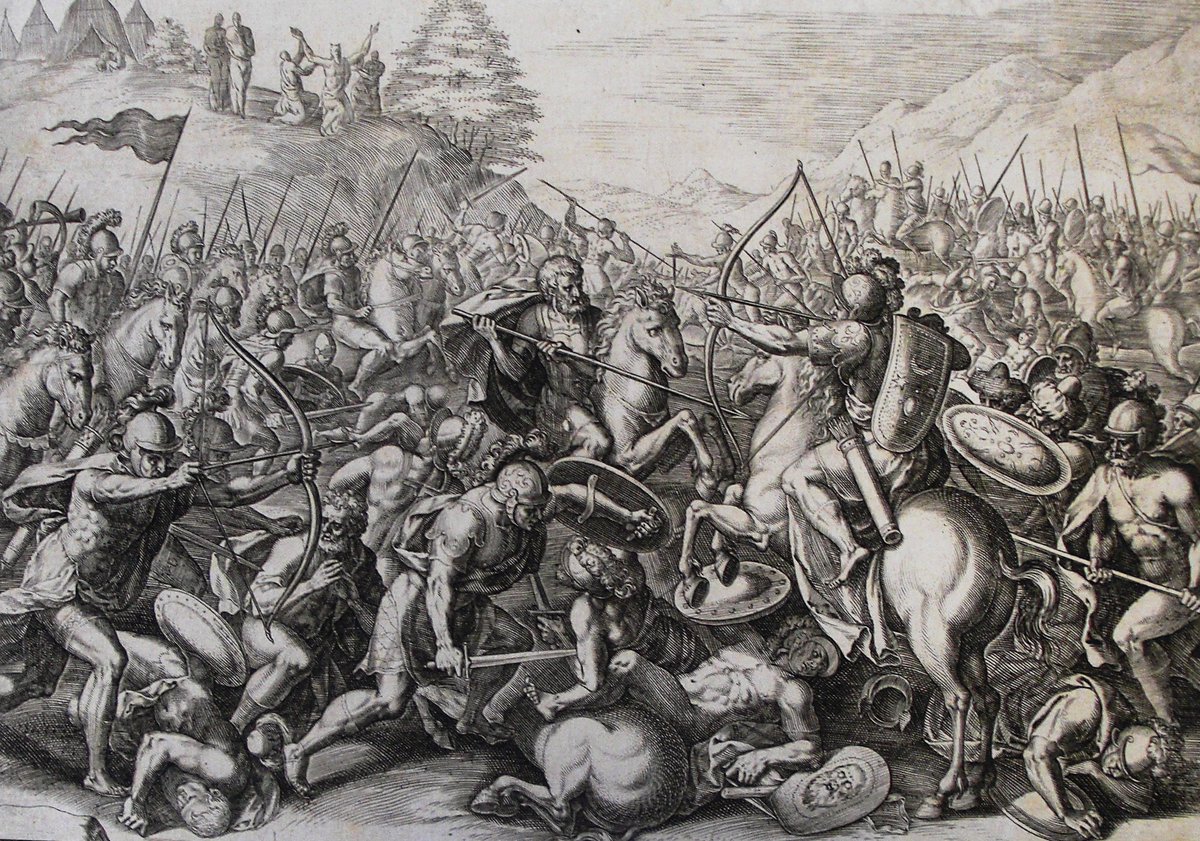
Guy Reisman
@ReismanGuy
Followers
711
Following
8K
Media
4K
Statuses
6K
"To the most trivial actions, attach the devotion and mindfulness of a hundred monks. To matters of life and death, attach a sense of humor." - Zhuangzi
Petah Tikvah, Israel
Joined December 2018
Th povitrulya is a type of fairy-woman from the folklore of the Ukrainian Carpathians. They appear before lovelorn shepherds in the shape of their loved ones, sometimes blessing them with luck. Certain shepherds steal their wings to get them to marry. (art by maloviy_ua)#Folklore
0
0
1
In a Basuto (Botswana native) version of the legend, Ditaolane, after being born to the only survivor of an attack by the giant monster Khodumodumo, miraculously grew in moments into an armed, wise, adult man. He set off to cut the monster up and release those it ate.#Folklore
0
0
0
An Aztec saga describes the tricks that the sorcerer Titlacaoan humiliated the Toltecs with: one was to conjure a tiny, dancing man, who when they kill, releases a corpse-stench so bad it kills all who come near. Furthermore: despite being tiny, it's too heavy to move.#Folklore
0
0
0
The Hero Twins of Mayan legend only discovered ballgames at an older age. Since it was over a ballgame their father died, their mother hid his ball in a secret space in their house. It was only with the aid of a clever rat the Twins were able to find and get it.@MythologyMonday
0
1
3
In the folklore of Japan's Echigo prefecture, "Nure Onna" ("Wet Woman") is a yōkai with the head of a woman and the body of her snake, sometimes hundreds of meters long. Her hair seems to be always wet, and she's frequently found washing it in a river. Can be dangerous.#Folklore
0
1
6
The ancient Egyptian goddess Isis is sometimes depicted with the head of a cow. A myth explains this as Thoth having had to replace her original head with one when she was beheaded by Horus after accidentally spearing him in an attempt to defend him from Set.#Folklore #Mythology
0
0
0
Legendary Norse hero Egil Skallagrimsson was named "Kveldulf Bjalfason", his first name meaning "Night-Wolf". Some said this was because he was either an "ulfhéðinn" who could turn into a wolf in battle, or had the ability to project his spirit in wolf-form while asleep.#Folklore
2
2
6
Hippolytus of Greek mythology, son of Theseus and the Amazon Hippolyta, was completely uninterested in women, preferring to focus on hunting and sports. This offended Aphrodite, goddess of love, so much that she made his own mother lust madly after him. #Folklore #Mythology
0
1
4
In Thai folklore, the Pleiades are called "the Chicken Stars", after a legend in which they were seven chicks who jumped into the fire with their mother, a poor farmer's last hen, which he offered to a traveling monk. The monk blessed them forever for their virtue.#Folklore
0
0
3
Certain Jewish sages have claimed that the famous biblical commandment to kill not just the people of the Amalek tribe but their pets and livestock too was because the Amalekites were infamous sorcerers, and some of them might've tried to escape the Jews in animal forms.#Folklore
1
2
3
These carved figurines are merely representations of tupilaqs, killing-objects from Greenland Inuit folklore. A tupilaq is made by an angakkuq (magician) from various objects in a highly secretive ritual, then animated and sent forth to slay or harm their enemies.#MythologyMonday
0
5
8
In some versions of the myth, Snowdon Mountain in Wales was originally the burial cairn of the giant Rhudda Gawr, who slew 28 kings of the land and made a cloak out of their beards. He was slain by King Arthur after attacking him to use his beard to patch a hole in it. #Folklore
0
2
4
In some Basque traditions, it is the charcoal-burning figure "Olentzero" who gives children gifts on Christmas. His origin is debated: sometimes he's the last of the giants, who besides him committed suicide rather than accepting Christ; sometimes a kindly man's spirit.#Folklore
0
0
0
It was a folk belief in certain parts of the Ozarks that a net made finely from horse hair could protect a house from witches who'd try to shrink down and invade through the keyhole, as the witch would have to go back and forth through every single hole in the net first.#Folklore
0
0
1
For all his great achievements as ruler of the kingdom of Pagan, Nyaungu Sawrahan is yet remembered by many as "The Cucumber King", after the likely anecdotal tale he was a simple farmer who became king by murdering his predeseccor for stealing a cucumber from his field.#Folklore
0
2
3
In some German folktales, kobolds are house fairies that can be helpful if treated correctly. Care should be taken: some want to be given clothes; others hate it; one supposedly asked for milk, and when a kitchen boy got took it, it dismembered him and boiled his limbs.#Folklore
1
0
1
In certain parts of south-central Kyoto, the "tsurube-otoshi" was said to be a type of yōkai that lives at the top of certain trees. Appearing like a severed head, it tempted people beneath its tree then dropped on them and scooped them up in a bucket to eat over 3 days.#Folklore
0
1
2
In some versions of the Mesopotamian myth, Innana is rescued from the underworld by Asushunamir, a person who is neither man nor woman (possibly intersex or maybe nonbinary). For this, Ereshkigal, ruler of the underworld, curses such people to forever be outcasts.#MythologyMonday
1
3
11


















